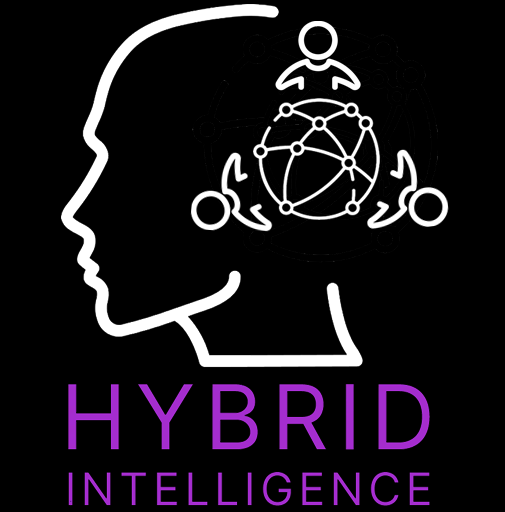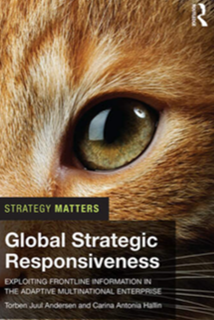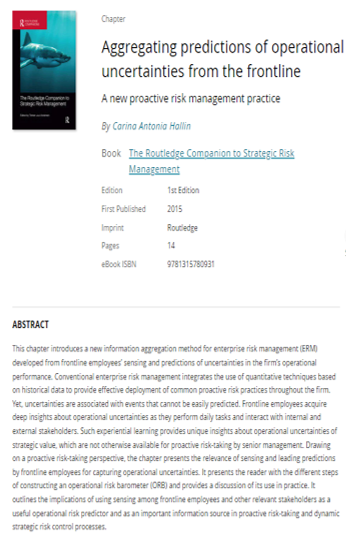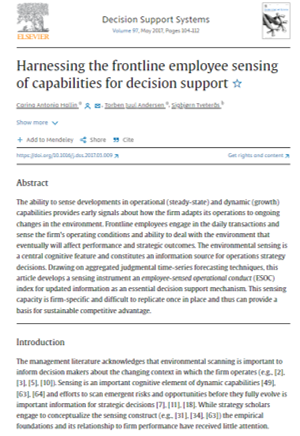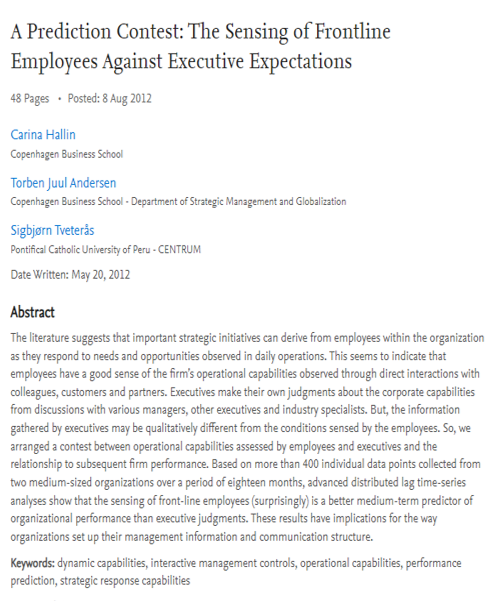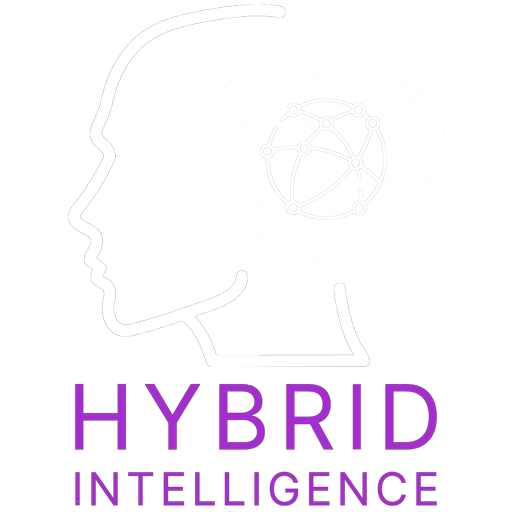The Future is Predictive - Prediction is the Future!
Commercial Explorer
Hybrid Intelligence
EMBARK ON A REVOLUTIONARY JOURNEY
JOIN OUR CALL FOR INVESTMENT AND PARTNERSHIP IN HYBRID INTELLIGENCE-DRIVEN SOFTWARE - UNLEASHING THE POWER OF HUMAN INTUITION AND AI.
As we are now at the beginning of the Fifth Industrial Revolution, where artificial intelligence (AI) and human intuition converge to redefine the landscape of transformation and innovation, we are thrilled to invite you to participate in a groundbreaking endeavor – the development of next-generation software that will empower the hybrid intelligence-driven future.
Our vision is to create software that seamlessly integrates human intuition and AI, unlocking a new paradigm of decision-making and problem-solving. This fusion of human expertise and machine intelligence will enable us to tackle complex challenges, optimize processes, and foster unprecedented breakthroughs across industries.
Everything you need for this Commercial Explorer in one place.....
Welcome to the Commercial Explorer Program "The Future is Predictive!"
Background
Dr. Carina Antonia Hallin's extensive research on intuitive judgments and crowd predictions has spanned over two decades, beginning in 2004. This page delves into her journey of exploration.
Disclaimer: Please note that adaptations of her original research undertaken by individuals, organizations, or societies other than Dr. Hallin herself and Hybrid Intelligence World may not possess the same level of expertise in commercialization, testing, validation, and comprehension of the full applicability of various prediction parameters, which also include extensive prediction frameworks.
February 2004, Cornell University, Upstate New York
Carina Antonia Hallin, a master's degree student at Cornell University, was sitting outside the Johnson Business School, gazing at the building of the world-renowned Cornell School of Hotel Administration. As she absorbed the service purpose of the hotel school, the research hypothesis "The future is predictive" emerged in her mind.
This hypothesis might seem paradoxical, but it was grounded in Hallin's own observations as a young employee in the service industry. She had noticed that service workers, through their daily interactions with colleagues, guests, and managers, accumulated a wealth of tacit knowledge and prescient intuitions, about the hotel's guest satisfaction, innovation capability, managerial performance, team dynamics, and a multitude of other aspects of the business.
Despite employee tacit knowledge holding a unique and potential strategic value about the conditions and state of the company, Hallin questioned why management hardly ever harnesses intuitive judgements from their employees.
January 2005, Singapore
Hallin sets out on a pre-study for her Ph.D. to be able to test the hypothesis "The future is predictive."
She travels to Singapore, with her destination being the legendary Raffles Hotel, founded in 1887.
There, she interviewed hotel employees and managers about the intricate dynamics of tacit knowledge transfer across generations. Moreover, she sought to identify the performance parameters that frontline staff, through their daily interactions, intuitively discerned—insights that could hold the key to the hotel's enduring success.
February 2005, Alice Springs, Australia
Dr. Hallin embarked on a journey from Singapore to Alice Springs, Australia, to attend a joint conference on information systems and hospitality management. During this conference, she presented her research on measures for capturing tacit knowledge and intuitive judgments, engaging in insightful discussions with professors from both disciplines.
This pre-study sparked two fundamental research questions that would shape Dr. Hallin's subsequent investigations:
- How can we effectively collect tacit knowledge and leading intuitive judgments?
- If we can harness such intuitive judgments from employees, what predictive power do they hold for a company's future financial performance?
These two questions marked the beginning of a multi-year journey into the realm of aggregating human tacit knowledge, sensing, and intuitive judgments.
July 2005 to October 2009, Ph.D. Studies
In July 2005, Hallin received funding to start her research project at the University of Stavanger, Norway, and for her research stay at the Copenhagen Business School. In her studies, she became inspired by George Katona.
George Katona, a Hungarian-born American psychologist, was a pioneer in bridging the gap between economics and psychology. His doctoral studies in experimental psychology at the University of Göttingen in 1921 laid the foundation for his lifelong exploration of the psychological underpinnings of economic behavior. Working as a journalist and researcher in Germany until 1933, Katona's initial focus was on Gestalt psychology, particularly the mechanisms of learning and memory. However, the outbreak of World War II drew him into the American government's efforts to utilize psychological principles to combat inflation. This experience sparked his interest in applying psychological concepts to macroeconomics, leading him to develop measures of consumer expectations that ultimately evolved into the University of Michigan Consumer Sentiment Index.
Katona's groundbreaking index proved its worth during the post-war era when he correctly predicted an economic boom while conventional econometric indicators were forecasting a recession. This remarkable success cemented the index's credibility and further solidified Katona's reputation as a pioneer in the developing field of behavioral and economic psychology, (Katona, 1960, The Powerful Consumer).
Testing, Testing, and Testing
In an empirical field study spanning 18 months, Hallin analyzed the intuitive judgments gathered through monthly surveys from frontline employees across the Scandinavian hospitality sector. This comprehensive examination yielded groundbreaking insights, revealing that frontline workers possess a remarkable ability to glean profound insights into the future performance of hospitality companies. Notably, their judgments often diverge from those of management, highlighting the unique perspective and expertise of frontline employees.
This research underscores the significance of tapping into the collective wisdom of frontline workers to gain a deeper understanding of organizational dynamics and enhance predictive capabilities.
Copenhagen Business School and Santa Clara, California
In the spring of 2012, while holding the position of an Assistant Professor at Copenhagen Business School, Hallin became intrigued by MIT Professor Thomas W. Malone's work, "The Future of Work." This groundbreaking book, along with Malone's subsequent research on collective intelligence, resonated with Hallin's own research on intuitive judgments. Professor Malone's work also introduced Hallin to cases of prediction markets and innovative platforms that aggregate and analyze the collective intelligence of participants.
Hallin's participation in one of the first collective intelligence conferences, held in Santa Clara, California, in 2015, allowed her to gain a deeper understanding of the practical applications of this burgeoning field. This experience further solidified her belief in the transformative potential of collective intelligence for revolutionizing organizations and societies and empowering individuals to make informed decisions.
Validation, Validation, and Validation, Locally and Globally
From 2013 and onwards, Dr. Hallin, colleagues, and her dedicated research teams embarked on a rigorous validation process to solidify the findings of her work on frontline employee intuitive judgments and their predictive potential. This ongoing endeavor has involved testing prediction instruments across a diverse range of industries, including telecommunications, cruise travel, offshore operations, travel and tourism, the finance sector, toy manufacturing, and healthcare.
These extensive validation efforts have yielded compelling results, and consistently demonstrating the ability of frontline employees to provide valuable insights into future trends and organizational performance.
The research has highlighted the untapped potential of harnessing the collective intelligence of frontline workers and citizens to enhance decision-making and policy-making and thereby improve outcomes.
HOW IT WORKS
We are now seeking investment to partner with you in developing the next generation of intuition tools, powered by artificial intelligence, to create a hybrid Intelligence-driven future for humanity.
1. Book a Demo in the contact form below
Watch our Demo for this Commercial Explorer.
2. Review our Investor Pitch Deck in a meeting with us
We'll prepare an Investor Pitch Deck tailored for you.
3. Approve investment deck, revenue, and timetable
We'll prepare a final deck and investment contract for you to review and approve.
4. Investment kick-off where you meet the team
Once we've agreed on all the details, we'll get started.
5. Tech development starts
Tech solution is accomplished on time, and when you're fully satisfied.
